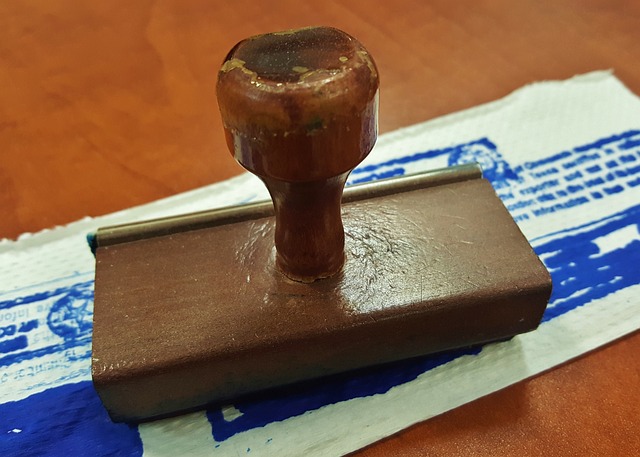Notarised translation services UK are indispensable for ensuring that legal documents are both linguistically and legally accurate across different languages. These services combine the expertise of professional translators who specialize in legal language with the authority of a notary public to certify document accuracy within the UK's legal system, which demands precision for international transactions, immigration, and legal proceedings. The notarisation process ensures that translated documents are legally binding, adheres to strict legal standards, and respects cultural differences, making them acceptable in UK courts and for official registrations. For those dealing with multilingual legal documentation, utilizing certified translators and the UK's notarisation system is crucial to prevent errors and maintain communication integrity. When choosing a provider, consider their reputation, expertise in legal terminology, and comprehensive service offerings that include notarisation and competitive per-word rates. It's important to select a service that is recognized by professional bodies like the Institute of Translation and Interpreting (ITI) and has a track record of handling complex legal documents with accuracy and care. This guarantees that your translations will meet UK legal standards for notarisation, facilitating secure and legally valid document certification both within the country and internationally.
Navigating the legal landscape of the United Kingdom necessitates precise documentation, a task often requiring notarised translation services. This article delves into the critical role such services play in legal contexts, guiding readers through the nuances of certified translations and the collaboration of translators and notaries public within the UK’s legal system. We explore cost-effective avenues to procure these essential services without compromising on quality. By comparing different service providers and outlining the step-by-step process for notarisation, readers will gain a comprehensive understanding of how to secure reliable notarised translation services UK for their legal needs.
- Understanding the Necessity of Notarised Translation Services for Legal Purposes in the UK
- The Role of Certified Translators and Notaries Public in the UK Legal System
- Comparing Costs and Quality: Finding Affordable Yet Reliable Notarised Translation Services
- The Process of Notarising Translations: Steps and Requirements in the UK
- Top Providers of Notarised Translation Services in the UK: A Comprehensive Guide
Understanding the Necessity of Notarised Translation Services for Legal Purposes in the UK

In the UK, legal documents often require precise and authentic translations to facilitate international transactions, immigration processes, and legal proceedings. The necessity for notarised translation services arises from the critical importance of verifying the accuracy and credibility of translated content within a legal context. Notarised translation services in the UK ensure that translations are both linguistically correct and legally compliant, providing assurance to individuals and organisations dealing with multilingual documents. These services involve a qualified translator and a notary public working together to certify that the translation is complete and faithful to the original document. This dual certification is crucial as it renders the translated document legally binding in the UK, making it acceptable for use in courts, for official registration purposes, or for any other legal requirements where linguistic precision and legal authenticity are paramount.
When engaging with international legal matters, the stakes are high, and errors in translations can lead to significant consequences. Notarised translation services UK bridge this gap by offering a solution that is both legally sound and culturally sensitive. The notary public attests to the identity of the person who signed the translation and confirms that the translated text accurately reflects what the original document states, without omitting or altering any content. This meticulous process adheres to the stringent standards set by UK legal entities, ensuring that all parties involved can trust the integrity of the translated document. For those navigating the complexities of international law, utilising notarised translation services in the UK is an essential step to safeguard against potential miscommunications and to uphold the sanctity of legal transactions across borders.
The Role of Certified Translators and Notaries Public in the UK Legal System

In the UK legal system, the accuracy and authenticity of documents translated from or into English are paramount. Certified translators play a pivotal role in this context, ensuring that legal texts are rendered with precision and fidelity to the original content. These professionals possess specialized expertise, enabling them to convey complex legal terminology accurately across languages. Their translations are crucial for international litigants, businesses engaging in cross-border transactions, and individuals dealing with immigration procedures, where documents must be presented in both their original language and a certified English translation.
Notarised translation services UK are an integral part of this process, as notaries public add an additional layer of verification to the translations. Notaries public are officially appointed by the UK government to authenticate signatures and seals on documents, attesting to the identity of the document’s signatories and the authenticity of their signatures. When a translation is notarised, it carries an official stamp or seal indicating that the document has been accurately translated by a certified translator and that the notary public has verified both the translation’s content and the translator’s qualifications. This official endorsement makes notarised translations legally acceptable in various UK legal proceedings, ensuring that they are recognized and respected across different jurisdictions, thus facilitating smoother interactions between individuals and institutions within the UK’s diverse multicultural landscape.
Comparing Costs and Quality: Finding Affordable Yet Reliable Notarised Translation Services

When in need of notarised translation services in the UK, individuals and businesses alike face the challenge of balancing cost with the integrity of the translation provided. The process of notarisation adds a layer of authenticity to translations, ensuring that official documents are accurately conveyed across languages for legal purposes. To navigate this balance effectively, one must conduct thorough research to compare both costs and quality among service providers. It’s crucial to identify reputable agencies that specialise in notarised translation services UK-wide, as they often employ expert linguists with a deep understanding of legal terminology. These professionals can ensure the translated document retains its original intent, adhering to the stringent requirements set forth by UK law. When comparing costs, consider not only the per-word rate but also any additional fees for notarisation and certification. Opting for services that offer a bundle of these essential steps can lead to significant savings and streamline the process. Additionally, reading reviews and seeking recommendations from legal professionals or fellow clients who have had positive experiences with certain agencies will guide you towards both affordability and reliability in your choice of notarised translation services UK providers.
The Process of Notarising Translations: Steps and Requirements in the UK

In the United Kingdom, obtaining a notarised translation for legal purposes involves a precise set of steps designed to ensure the document’s authenticity and compliance with UK regulations. The process commences with selecting a certified translator who is proficient in both the source and target languages. This translator must be a member of a relevant professional body, such as the Institute of Translation and Interpreting (ITI), and have experience in legal translation to guarantee accuracy and expert understanding of legal terminology. Upon completion of the translation, the document must undergo a thorough review to ensure there are no discrepancies or errors.
Once the translation is confirmed accurate, it is presented to an official notary public. In the UK, this is typically a solicitor or a fellow member of the Society of Notaries (Council of the Law Society). The notary will verify the translator’s credentials and the translation’s content before affixing their official seal and signature to the document. This act attests to the fact that the translation is true and faithful to the original text. The notarised translation is then ready for use in legal contexts, providing a legally binding and internationally recognised record of the translated content. It is imperative that both the translator and the notary adhere to the UK’s strict standards for notarisation to ensure the document’s integrity and acceptability within legal frameworks. Notarised translation services UK are integral for individuals and organisations dealing with international legal matters, offering a secure and legally sound way to certify documents for use abroad or in official UK proceedings.
Top Providers of Notarised Translation Services in the UK: A Comprehensive Guide

navigating the complexities of legal documents in a multilingual world, businesses and individuals alike often require the expertise of professional notarised translation services in the UK. The United Kingdom’s diverse population and its position as a global business hub necessitate high-quality translations that are legally binding. Notarised translation services UK play a pivotal role in this regard, ensuring that legal documents are accurately translated and notarized for use across different jurisdictions. These services go beyond mere linguistic translation; they involve the certification of the translator’s identity and the accuracy of their work by a public notary. This adds an extra layer of trustworthiness to the translations, making them legally recognised and accepted in both domestic and international settings.
When seeking top-tier notarised translation services UK, one must consider the providers’ qualifications, expertise in various language pairs, and their ability to handle the specific legal document at hand. Leading providers are well-versed in the nuances of legal terminology and the procedural requirements for notarisation. They often have a network of professional translators who are native speakers and subject-matter experts, ensuring that every translation is not only accurate but also reflective of the original document’s intent. Additionally, these providers are familiar with the different types of notarisation and can guide clients through the process, whether it be a simple acknowledgement of service or a more complex apostille or legalisation process. This guide aims to highlight the most reliable and competent notarised translation services UK available, empowering readers to make informed decisions for their legal translation needs.
In conclusion, navigating the legal landscape in the UK for individuals and businesses often necessitates professional notarised translation services to ensure clarity and legality of foreign language documents. The UK’s stringent requirements for such services underscore the importance of selecting both certified translators and notaries public who are not only proficient but also cost-effective. This article has outlined the essential steps and providers that can meet these needs, offering a clear path to obtaining reliable notarised translation services UK-wide without compromising on quality or incurring unnecessary expenses. By adhering to the established protocols and utilising reputable services, individuals and entities can confidently bridge linguistic barriers within the legal context, paving the way for successful outcomes.
